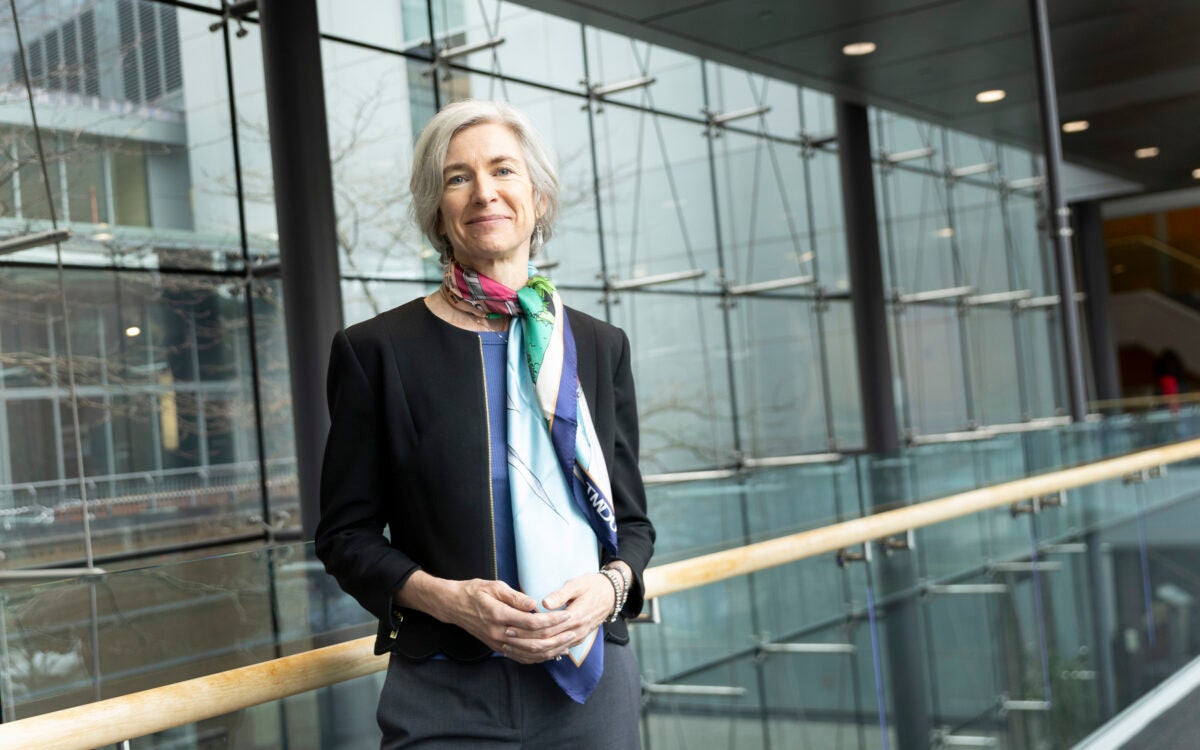Blavatnik Family Foundation gives Harvard $10M
Cancer vaccine research and technological development to benefit life sciences
The Blavatnik Family Foundation, headed by Len Blavatnik, M.B.A. ’89, has given Harvard University two gifts totaling $10 million in support of its scientific and technological research. Half the gift will go to the Eli and Edythe L. Broad Institute of Harvard and MIT to support cancer vaccine research, and half will go to the Harvard University Technology Development Accelerator Fund, which seeds highly promising early-stage research in the life sciences.
“We are deeply grateful to the Blavatnik Family for their support of these powerful avenues for transformative scientific progress,” said Harvard University Provost Steven Hyman. “As one of the world’s foremost research universities, Harvard has a special obligation to foster the development and translation of scientific insights that could benefit the public and society as a whole. These generous gifts will allow us to continue to fulfill that obligation.”
These two gifts from the Blavatnik Foundation strengthen Harvard University’s commitment to advancing innovative scientific research that serves the public interest. The foundation’s $5 million gift to the Broad Institute will support the research of Professors Nir Hacohen and Catherine Wu of the Department of Medicine at Harvard Medical School. Hacohen and Wu are working to develop personalized cancer vaccines using genome-based identification of mutated tumor proteins (neoantigens). The goal of their research is to direct a patient’s own immune system to attack and eradicate a tumor based on the presence of these foreign neoantigens that are present only in the cancer cells. If successful, the development of personalized cancer vaccines will transform the way we treat cancer.
The Blavatnik Foundation’s $5 million gift to the Harvard University Technology Development Accelerator Fund will further the development of early-stage technologies that support progress in the life sciences — ultimately benefiting the public at large. The Accelerator Fund helps bridge the funding gap that leaves many promising technologies sitting on laboratory shelves, providing funding to move discoveries to the stage where traditional venture capital funds and industry might invest in them and develop their life-saving potential.
“I am proud to support Harvard University’s visionary activities in the realm of scientific and technological research,” said Blavatnik. “Harvard is consistently in the forefront of health and life science discoveries and I am very hopeful that these two significant grants by the Blavatnik Family Foundation will help to facilitate further breakthroughs benefiting all mankind.”
Launched in 2004, the Broad Institute is a scientific community of celebrated faculty, professional staff, and students from Harvard, the Massachusetts Institute of Technology, and other organizations working together to reach new scientific frontiers in genomic medicine.
Managed by the Office of Technology Development, the Harvard University Technology Development Accelerator Fund supports early-stage research in nascent technologies that have commercial potential and support public interest. Award recipients are chosen on scientific merit and the technology transfer potential of their proposals. In 2008, a total of nine projects were funded at $1.51 million.




